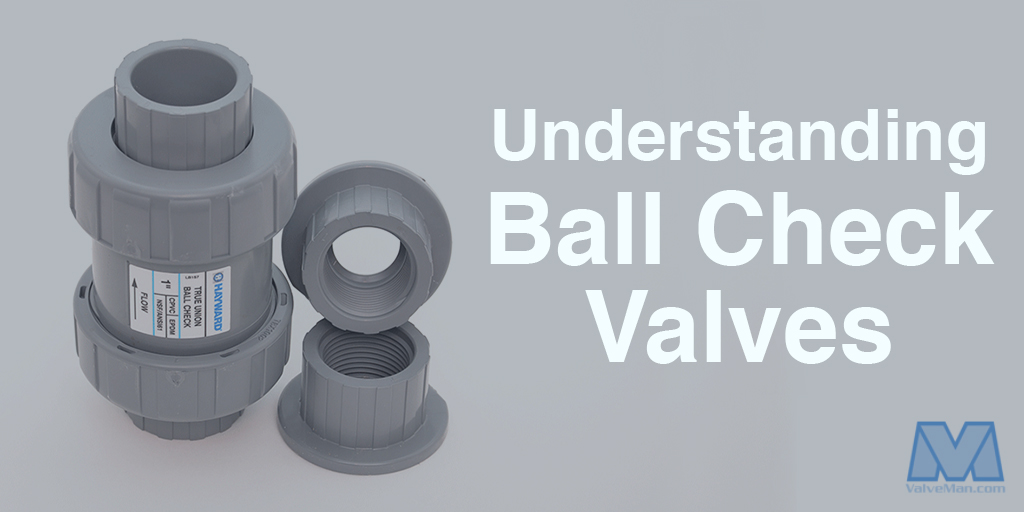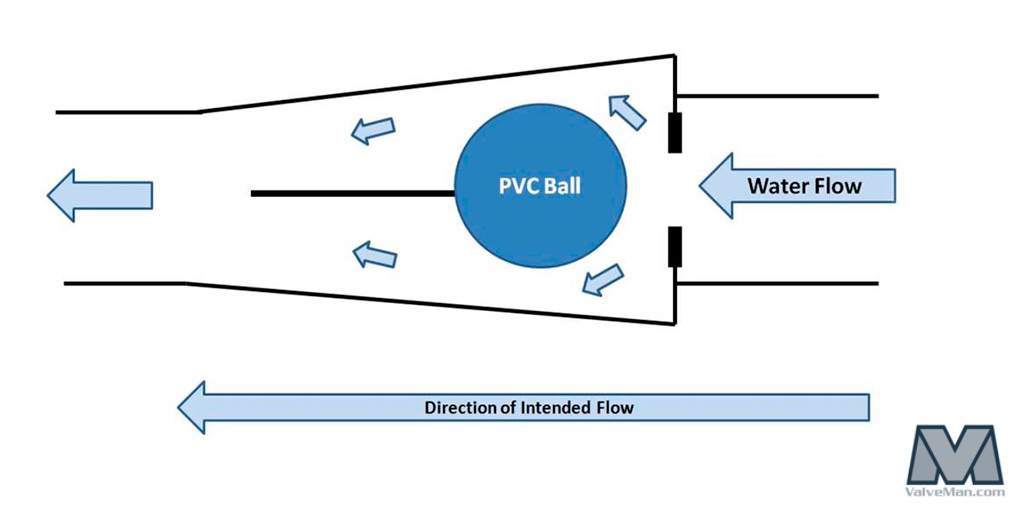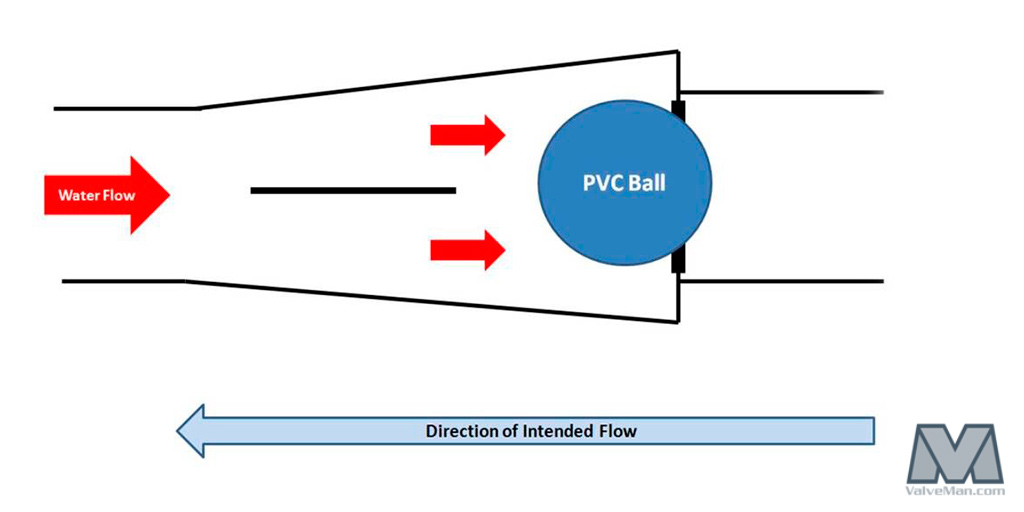Ball Check Valves

To understand ball check valves, it's best to start by learning what a ball check valve actually is and what a ball check valve actually does. By defining how they work, why they work, and what purpose they serve, you will know what to look for should you ever decide you need one. With this information, selecting the ball check valve that fits your application will be much easier.
What is a Ball Check Valve?
To answer this question in detail, let's first define what a check valve is. A check valve is simply a two port valve (one inlet and one outlet) that prevents the backward flow of a liquid or fluid within a line. This backward travel is commonly called back flow, and can cause contamination (as in drinking water), or reek havoc with refrigeration, pool, and other systems where back flow is unwanted.
There are various designs for check valves, but one of the most reliable is a ball check valve. Not to be mistaken for a ball valve, in which the ball is attached to a handle or other actuator, the ball in a ball check valve freely floats inside the housing. In other words, a ball check valve responds to the pressure, or loss of pressure, created by the fluid traveling through the valve. The actuation of the valve is essentially piloted by fluid pressure.

What Does a Ball Check Valve Do?
For an illustration, a ball check valve works like this: when fluid pushes against the ball with enough pressure, the ball moves to allow the fluid to travel through the valve. This is known as cracking pressure: the minimum amount of pressure needed to open the valve. If this pressure drops, or if pressure is applied to the ball from the opposite direction, the ball moves to close the valve to prevent undesirable back flow.
Because ball check valves serve this purpose, they are indispensable for countless applications and are utilized by every industry imaginable. They are common in pumps, HVAC units, irrigation units, pool plumbing systems, boilers, etc.--virtually in any application where back flow must not be permitted.
Where to Buy Ball Check Valves
Just as there are numerous applications for ball check valves, there are various designs for each one. Ball check valves may be constructed out of metals like brass, bronze, steel, stainless steel, PVC, or other thermoplastics, just to name a few. Some thermoplastic ball check valves have a ball made of similar material, and some utilize one that is steel, etc. At the ValveMan.com valve store, we carry a choice selection of the finest ball check valves available on the market today, including "true union" (removable housing) ball check valves.
We are an industrial grade valve supplier that has been in the business for over 50 years. We know all about ball check valves, and are more than happy to assist you in your selection. Unlike our competition, we only sell valves. It's simply what we do, and we do it better than anyone else.
Ball Check Valves - Related Articles
How Do Check Valves Affect Water Pressure in the Piping System?
What is the cracking pressure of a check valve?
What Check Valve Should I Use for my Application?
The Perfect Check Valve for Water Processing
Introducing Bonomi Check Valves
Why Choose Apollo Check Valves?
Introducing the Hayward TC Series True Union Ball Check Valve


